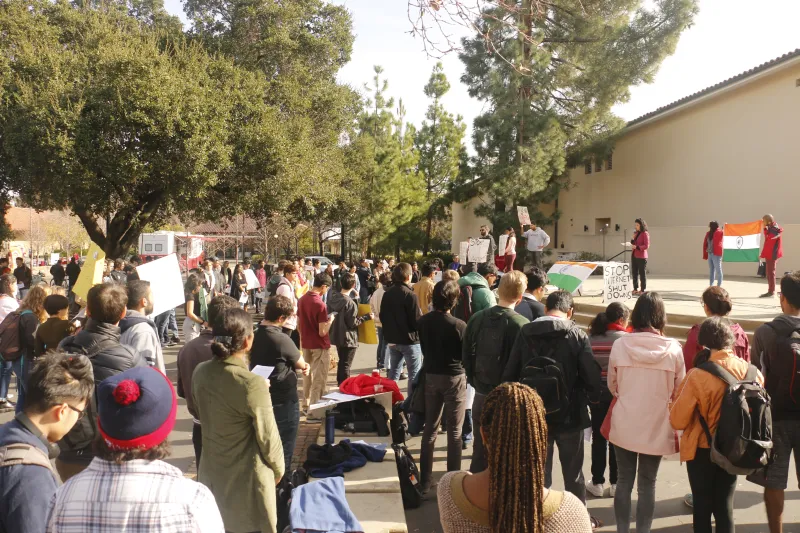This is an edited version of Ravichandra Tadigapada’s speech on Jan. 17 at the Stanford Rally Against Violence on Students & Anti-Muslim Discrimination.
Friends, I ask you today to fight for a dream. A dream that India dared to have 70 years ago. A dream that reinvented what was possible for humanity. Fighting for this dream entails fighting for secular democracy, fighting against discrimination and violence, and fighting for a radical concept of equality unlike anything the world has ever seen.
In the sheer scale and ambition of the project that was envisioned in 1947, independent India was among the greatest gambles in human history. Here was a nation determined to be secular in the aftermath of a religion-based partition, a nation that had chosen to go forward with universal adult franchise at a time when many disputed racial equality, and that chose unity despite being constituted of at least 2,000 different ethnic groups.
In the summer of 1947, the sovereign, socialist, secular, Democratic Republic of India had the conviction to simultaneously and definitively rebuff both the monarchists of yore and the homogenous nation-state paradigm of Europe. As a country, India courageously chose to sidestep millennia-old fault lines of religion, caste, ethnicity, and race, and instead, endeavored to build a just society, based on the simple premise of human dignity for all. Independent India attempted to reinvent the very meaning of what was possible in humanity, society, and civilization.
From its very inception, therefore, the idea of India was never restricted to its borders: in the breathtaking splendor of its vision, it was always an expression of hope for the collective future of humanity. For 70 years, India stood as an exemplar of some of the best achievements of human civilization, and an inspiration for a pluralistic, progressive future for the world.
And now, when the idea of India faces perhaps the most critical trial of its existence, the entire world order of liberalism and the fundamental premises it is built on are threatened. Because if the 1/7th of humanity that Indians constitute were to complete their slide into the darkness of ethnic authoritarianism tomorrow, our collectives hopes of a democratic world, a pluralistic world, and a just world, would likely be extinguished.
But as long as the Muslim women braving the cold in Shaheen Bagh in Delhi persist with their peaceful demonstration, as long as the students being intimidated by violence in Jawaharlal Nehru University retain their incredible courage of conviction, hope remains. Not only for me as an Indian, but also for every one of us gathered here today as members of the human community. Friends and comrades, these men and women in India are not fighting solely for themselves and their society, they are fighting for all of us. And that’s why we are standing here for them today, to demonstrate our solidarity with those brave folks.
73 years ago, on a dark yet brilliant night in the city of Delhi, a new star arose, the star of freedom in the east. A new hope came into being, and a vision long cherished materialised. May that star never set and that hope never be betrayed!
Jai Hind!
—Ravichandra Tadigapada, ’21
